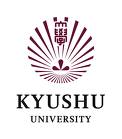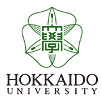Copyright and Freedom of Expression
Abstract
In this presentation, I would like to discuss copyright and freedom of expression from the perspective of cultural policy and the role of intermediaries.
Copyright and freedom of expression have a longstanding relationship that can be traced back to the origins of both ideas. The prototype of copyright was a "monopoly" granted to stationers and it played a very important role in terms of "censorship". However, in accordance with the establishment of modern copyright law, discussion between the two areas has been marginalized. This discussion got reignited at the end of the 1990s due to the development and widespread proliferation of digital and network technologies.
In much of the recent discussion, copyright has been regarded as an "obstacle" to the free speech. However, the famous US Supreme Court judgment of Harper & Row (1985) mentioned that "the Framers intended copyright itself to be the engine of free expression". How shall we now understand the relationship between two concepts?
In this presentation, I would like to point out that the copyright system should be located within an overarching framework of cultural policy and can better be understood via comparative institutional analysis. In comparison with government funding for culture or private/corporate philanthropy, the advantages and disadvantages of copyright law will be highlighted. In conclusion, I argue that copyright law supports an independence of creators and relevant stakeholders, and is situated at the core of the freedom of expression. But at the same time, the recent tendency of strengthening copyright protection has been outstanding, and many users have an increased level of distrust towards the copyright system. We need reforms in copyright system in order to be acknowledged by the society.
If we take a look at current copyright law, the significance of intermediaries should not be overlooked. Recent problems of Google Book Search brought critical questions of intermediaries regulation to the forefront of the debate, including how to conceptualize copyright limitations and exceptions, the relationship with libraries or museums from a cultural diversity point of view, applicable law of intermediaries' liability, etc.
By focusing on cultural policy and the role of intermediaries, I believe that we will be able to shed a new light on the contemporary configuration of stakeholder's and the institutional turn in copyright law.
• Prof. Peter Drahos
• Prof. Yoshiyuki Tamura
• Prof. Thomas Hoeren
• Prof. Branislav Hazucha
• Prof. Ryu Kojima
• Ms Zheng Zhong
• Prof. Shinto Teramoto
• Prof. Peter K. Yu
• Prof. Nari Lee
• Prof. Shamnad Basheer
• Ms Chonticha Sae Lim
• Prof. Pedro A. De Miguel Asensio
• Prof. Jacques de Werra
• Prof. Rong-Chwan Chen
• Mr Paul Jurčys


